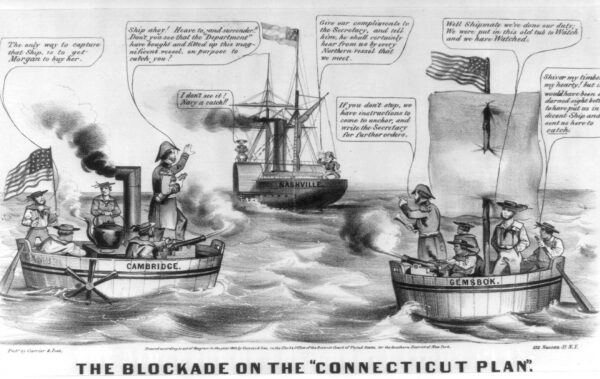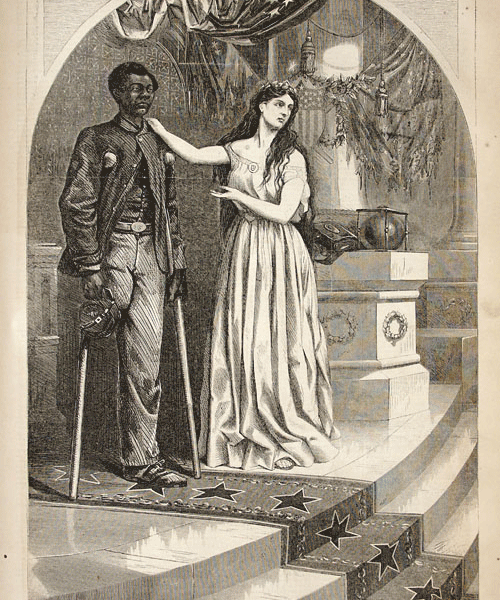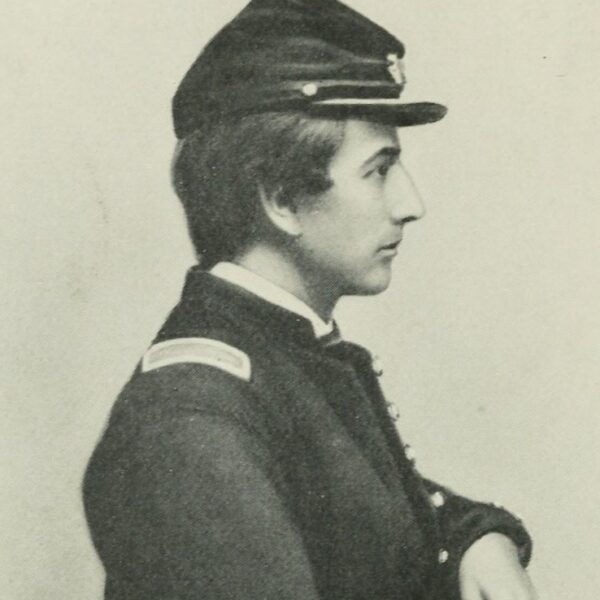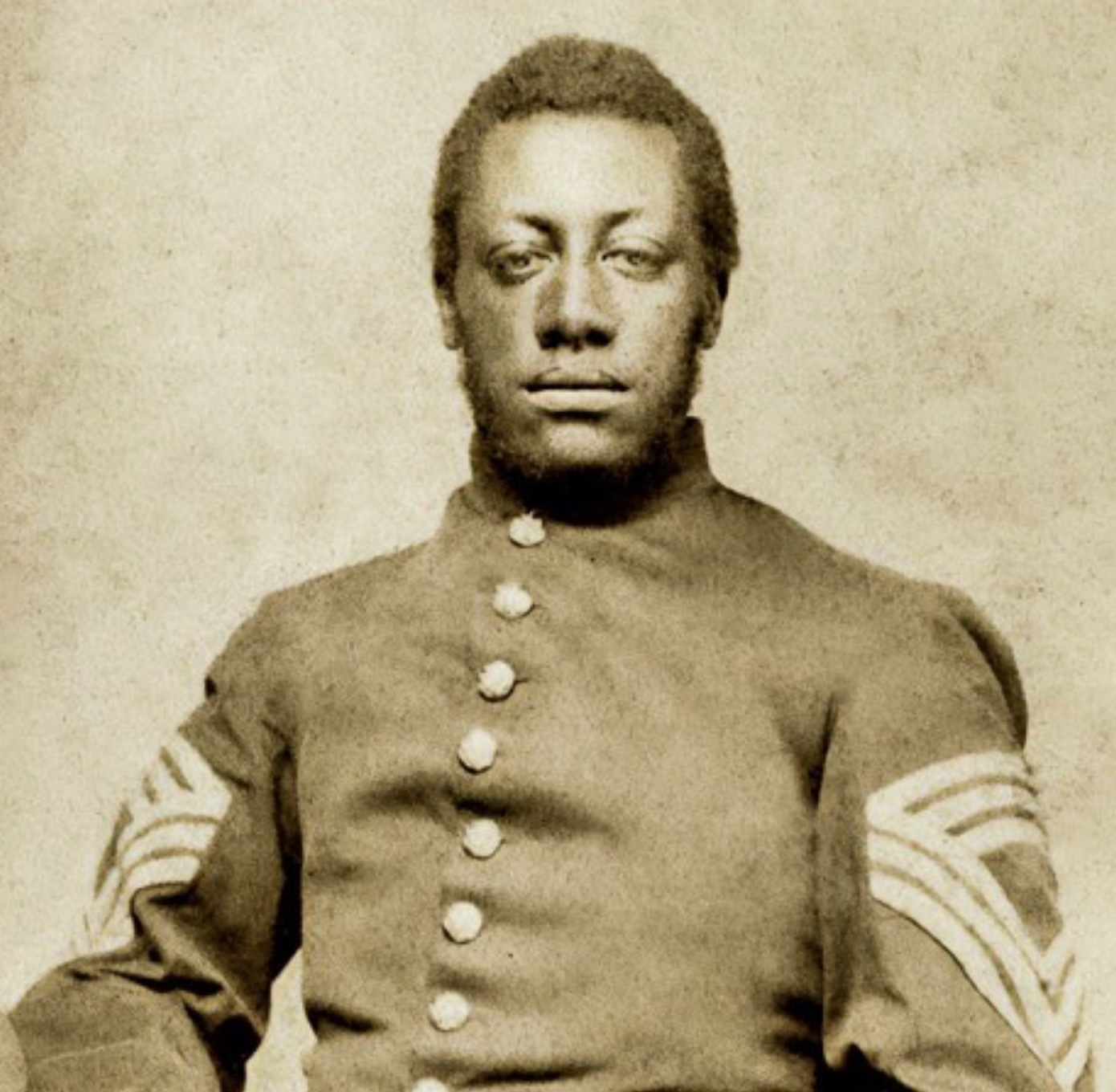
Lewis Douglass, 54th Massachusetts Infantry
On July 20, 1863, 22-year-old Lewis Douglass, a member of the 54th Massachusetts Infantry—and son of famed abolitionist Frederick Douglass—wrote the following letter to H. Amelia Loguen of Syracuse, New York. Two days earlier, Douglass and the 54th had participated in the failed Union attack on Fort Wagner on Morris Island, South Carolina. Some 40 percent of the 54th’s men were killed, wounded, or captured in the battle. Lewis survived the war; he and Amelia married in 1869.
My Dear Amelia:
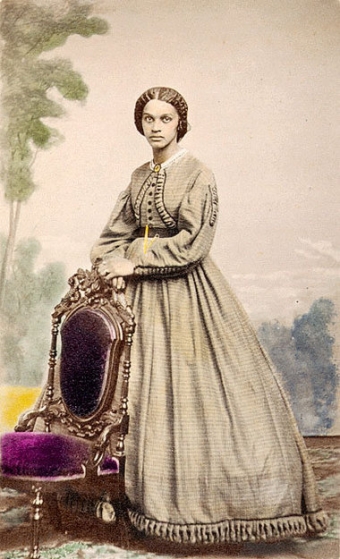
H. Amelia Loguen
I have been in two fights, and am unhurt. I am about to go in another I believe to-night. Our men fought well on both occasions. The last was desperate we charged that terrible battery on Morris Island known as Fort Wagoner, and were repulsed with a loss of 3 killed and wounded. I escaped unhurt from admist that perfect hail of shot and shell. It was terrible. I need not particularize the papers will give a better idea than I have time to give. My thoughts are with you often, you are as dear as ever, be good enough to remember it as I no doubt you will. As I said before we are on the eve of another fight and I am very busy and have just snatched a moment to write you. I must necessarily be brief. Should I fall in the next fight killed or wounded I hope to fall with my face to the foe. If I survive I shall write you a long letter. DeForrest of your city is wounded[,] George Washington is missing, Jacob Carter is missing, Chas Reason wounded[,] Chas Whiting, Chas Creamer all wounded. The above are in hospital. This regiment has established its reputation as a fighting regiment not a man flinched, though it was a trying time. Men fell all around me. A shell would explode and clear a space of twenty feet, our men would close up again, but it was no use we had to retreat, which was a very hazardous undertaking. How I got out of that fight alive I cannot tell, but I am here. My Dear girl I hope again to see you. I must bid you farewell should I be killed. Remember if I die I die in a good cause. I wish we had a hundred thousand colored troops we would put an end to this war. Good Bye to all Your own loving. Write soon Lewis
Source
Carter G. Woodson, ed., The Mind of the Negro as Reflected in Letters Written During the Crisis, 1800–1860 (1926)
Related topics: African Americans

